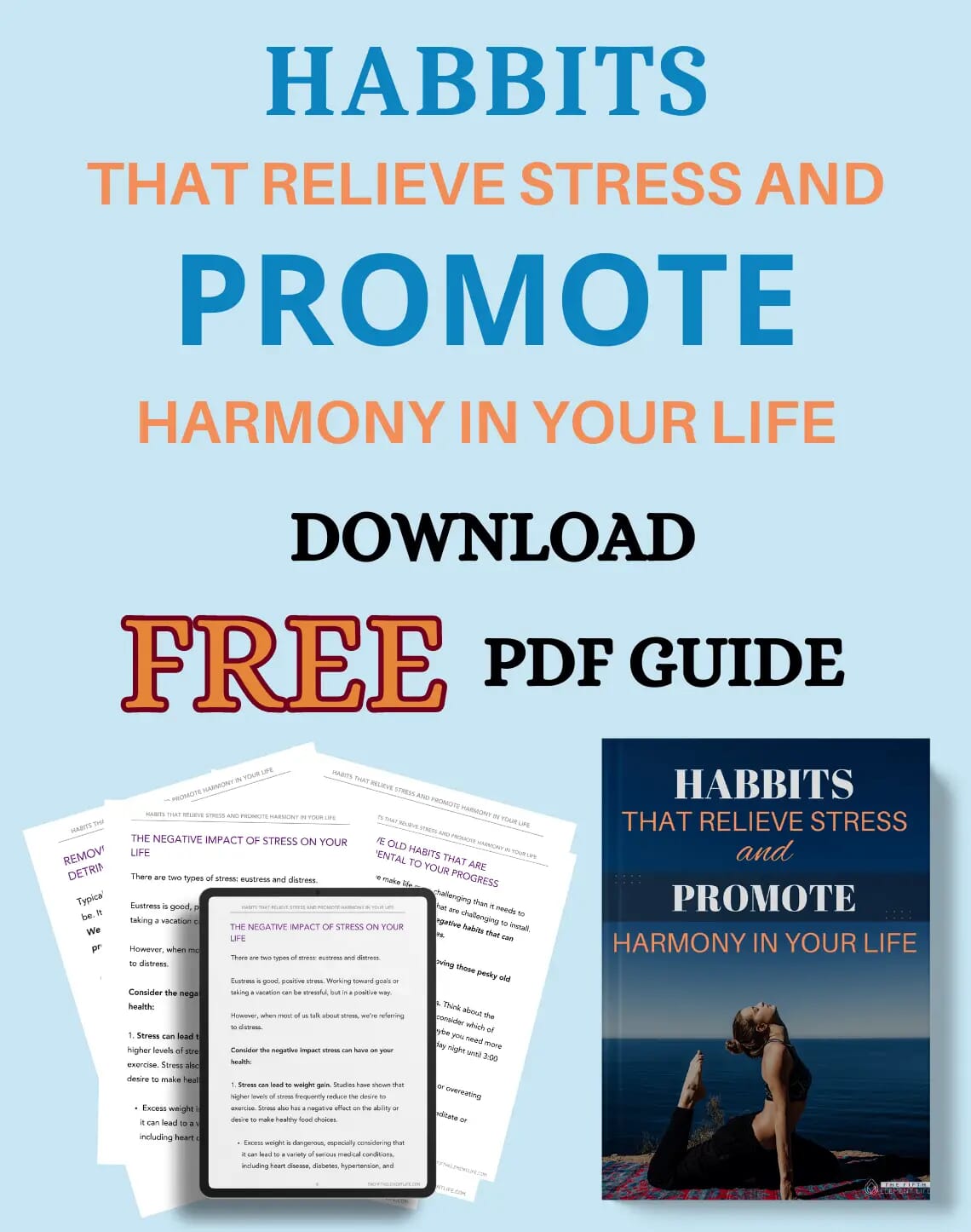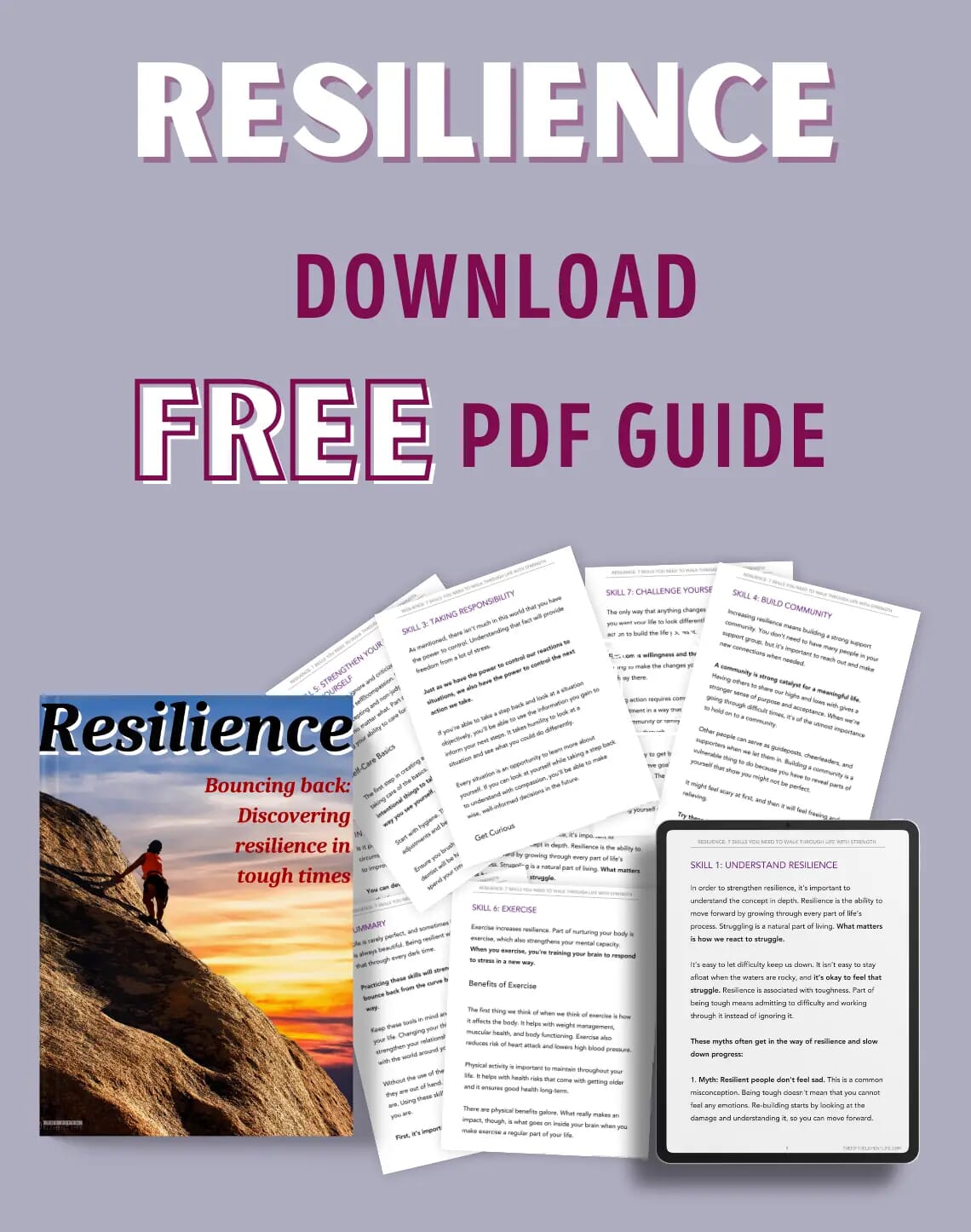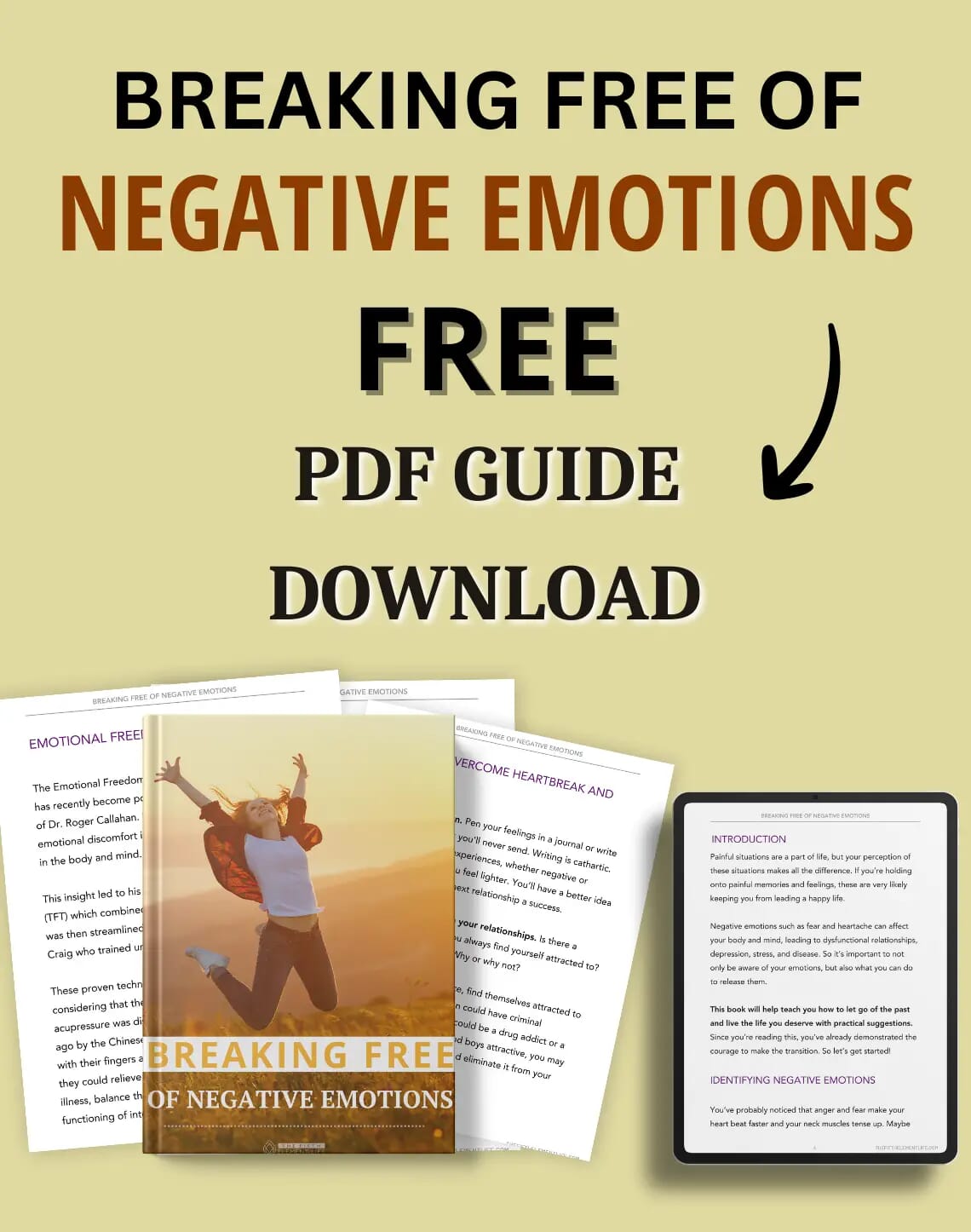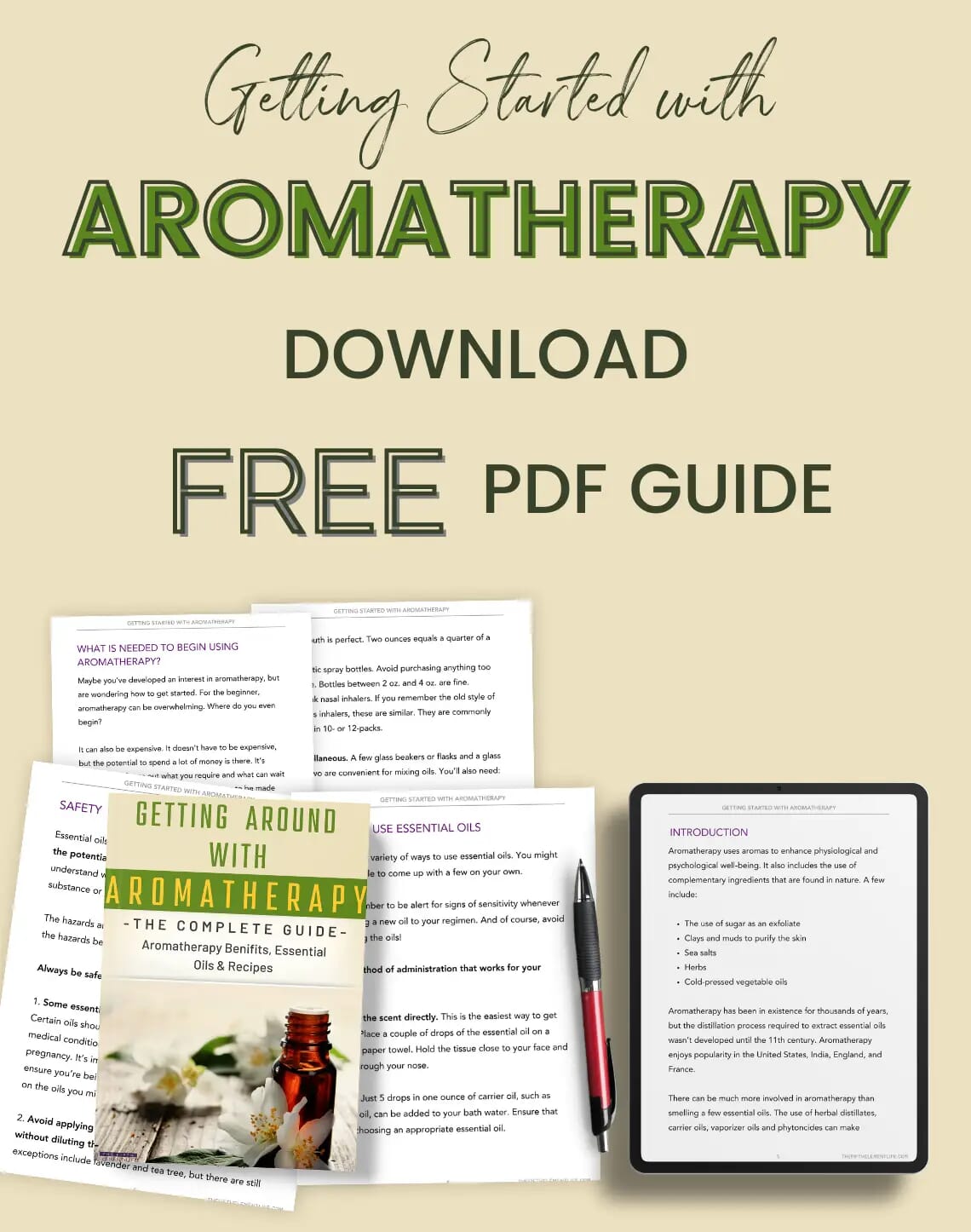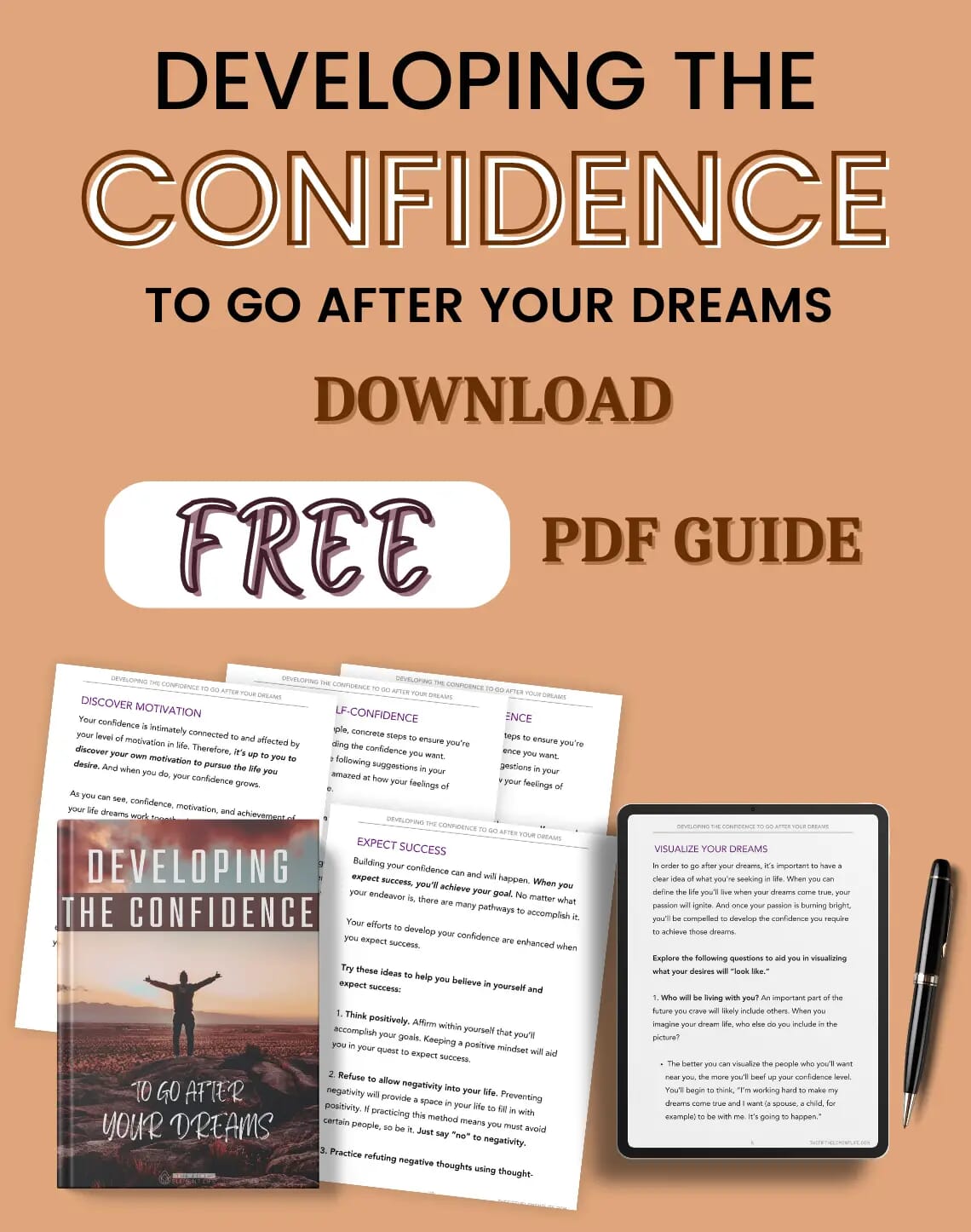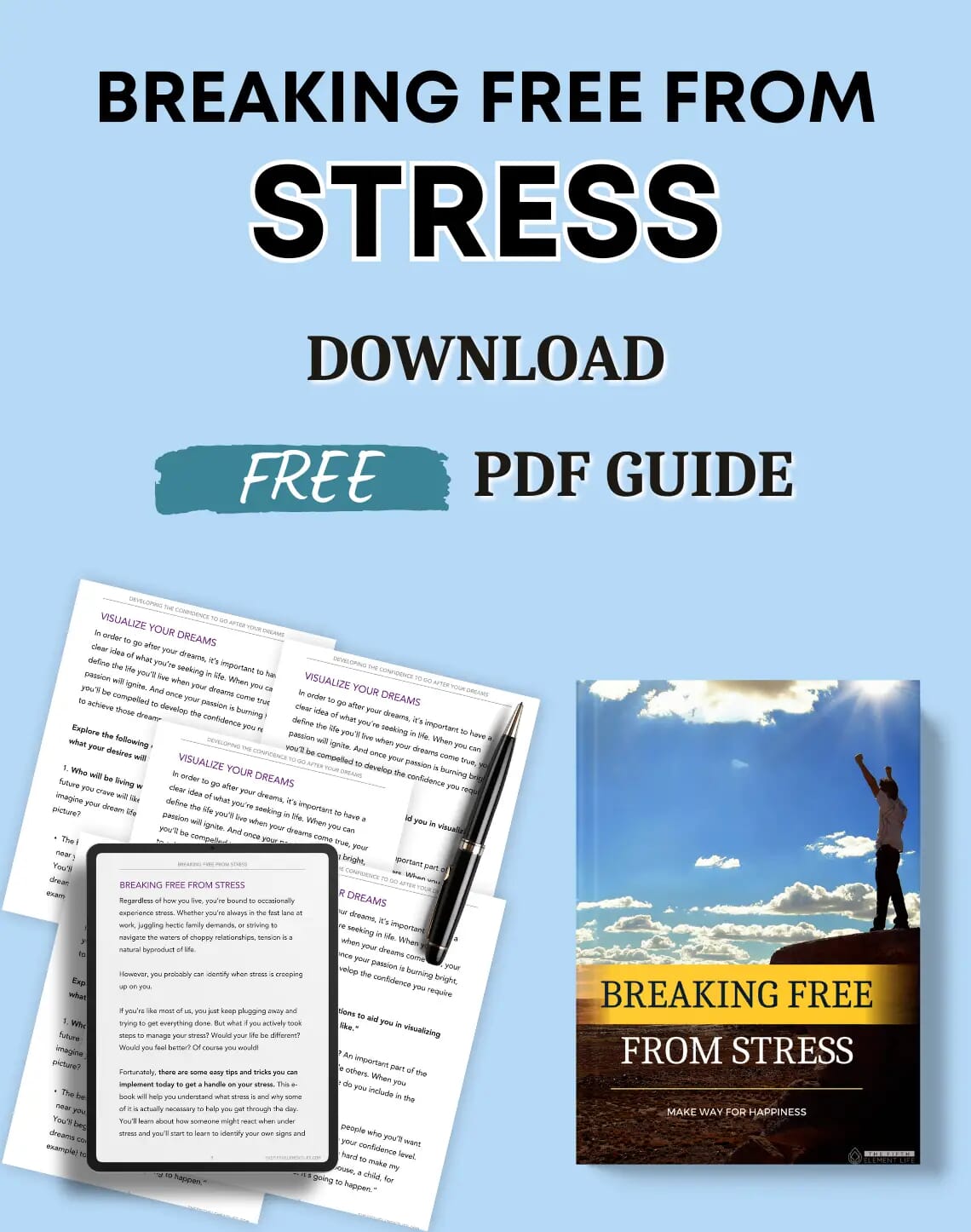Last Updated on April 22, 2024
Have you ever stopped to wonder how stress has become such an accepted part of our lives? Explore powerful habits that relieve stress, promote harmony in your life and enhance well-being in your life. Discover powerful strategies.
As I reflect on my own experiences, I realize how society has conditioned us to believe that stress is normal, unavoidable, and even necessary for success.
For the longest time, I wore my stress like a badge of honor, juggling multiple responsibilities and pushing myself to the brink of exhaustion.
But deep down, I knew there had to be a better way—a path to find relief, inner peace, and true harmony.
In this article, I invite you to join me on a personal journey of self-discovery, where we will challenge the notion that stress must dominate our lives.
Together, we will explore the profound impact of stress on our well-being and uncover the transformative power of positive habits to alleviate its grip.
As we navigate this path to a more balanced existence, I want to share with you the invaluable resource that has been my guide—the “Habits that Relieve Stress and Promote Harmony” journal.
Together, we will explore the chapters within the journal, each designed to help us develop habits that alleviate stress and promote harmony.
From understanding the negative impact of stress to embracing habits that make life more enjoyable, we’ll uncover the tools and strategies that can transform our lives from overwhelmed to empowered.
This journey is not about perfection, but rather about progress and self-discovery, as we learn to navigate challenges and create a life of greater balance and well-being.
Unveiling the Faces of Stress: How It Manifests in Your Life
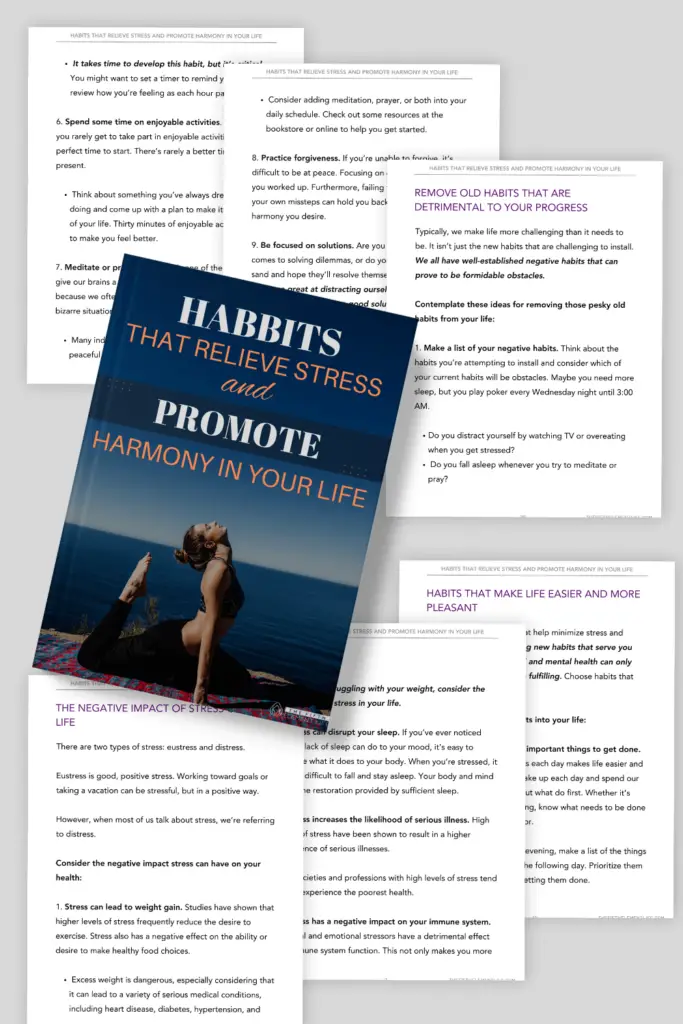
Stress is a pervasive force that can silently weave its way into the fabric of our daily lives, exerting its influence in various forms.
Recognizing the different ways stress manifests is crucial in understanding its impact on our well-being.
So to start off, here are some common manifestations of stress that you may relate to:
- Physical Symptoms: Stress often manifests as physical discomfort or ailments. It may present itself through headaches, muscle tension, fatigue, digestive issues, changes in appetite, or sleep disturbances.
These physical symptoms serve as red flags, signaling that stress is taking a toll on your body. - Emotional Imbalances: Stress has a profound impact on our emotional state. It can result in feelings of anxiety, irritability, restlessness, or mood swings.
You may find yourself more easily overwhelmed,experiencing heightened emotions or difficulty in managing stressors. - Cognitive Challenges: Chronic stress can affect your cognitive abilities, making it harder to concentrate, remember details, or make decisions. You might notice a decline in mental clarity, decreased productivity, or an inability to focus on tasks.
- Relationship Strain: Stress can strain relationships, both personal and professional. It can lead to conflicts, increased arguments, or a sense of disconnection. Chronic stress may cause you to withdraw from social interactions, affecting your ability to connect with others.
- Lifestyle Disruptions: Stress has a way of infiltrating various aspects of your life. It can disrupt your sleep patterns, appetite, exercise routine, and self-care practices.
You may find yourself turning to unhealthy coping mechanisms, such as overeating, excessive alcohol consumption, or withdrawal from activities you once enjoyed.
RELATED: 150 Negative Words That Start With X

Stress, in its various forms, can elicit both negative and positive responses within us.
Which is why it’s important to distinguish between the two to effectively manage stress and harness its potential for growth.
Let’s explore the difference between bad and good stress and how they impact our lives.
Bad Stress
This is the type of stress that overwhelms us, negatively impacting our mental, emotional, and physical well-being.
It arises from excessive pressure, persistent worry, and a sense of being unable to cope with life’s demands.
Bad stress can stem from various sources such as work pressures, relationship conflicts, financial concerns, or health issues.
When left unchecked, it can lead to chronic stress, adversely affecting our health and happiness.
Good Stress
Surprisingly, not all stress is detrimental.
Good stress, also known as “eustress,” can serve as a motivational force that propels us forward and promotes personal growth.
It arises from challenges, new experiences, and situations that push us out of our comfort zones.
Good stress often accompanies exciting life events, such as starting a new job, pursuing a passion, or taking on a meaningful project.
It energizes us, enhances our focus, and helps us perform at our best.
While bad stress can be overwhelming and detrimental, good stress can be invigorating and productive.
The key lies in finding the right balance and managing stress effectively.
By understanding the difference between the two, you can identify when stress becomes detrimental and take proactive steps to alleviate it.
Habits & Stress Relief
One of the keys to managing stress is how you approach your daily routines.
Stress and habits are closely intertwined, playing a significant role in our daily lives.
The way we approach and manage our habits can greatly impact our stress levels.
Let’s explore the relationship between stress and habits:
- Habit Formation and Stress: Habits are automatic behaviors that we engage in regularly without conscious thought. They serve as our default responses to various situations. When stress becomes a chronic presence in our lives, it can affect our habit formation process.
High-stress levels can lead to the development of unhealthy habits, such as emotional eating, excessive screen time, or procrastination. - Habit Loop and Stress Response: The habit loop consists of three components: the cue, the routine, and the reward. Stress can act as a powerful cue that triggers certain routines or behaviors. For example, when feeling stressed, some individuals may resort to smoking or excessive shopping as a way to cope.
These habits provide temporary relief or distraction, creating a reward that reinforces the behavior. - Positive Habits as Stress Relievers: On the other hand, positive habits can serve as effective stress relievers. Engaging in activities like exercise, meditation, journaling, or spending time in nature can help reduce stress levels and promote a sense of well-being.
These habits create a positive feedback loop, as the more we engage in them, the more stress relief and benefits we experience. - Habit Change and Stress Reduction: Intentionally changing our habits can contribute to stress reduction. By identifying and replacing unhealthy habits with healthier alternatives, we can reduce stress triggers and create a more harmonious lifestyle.
Cultivating habits such as regular self-care, setting boundaries, practicing mindfulness, and prioritizing relaxation can help counteract the negative effects of stress. - Habit Reinforcement and Stress Management: Consistency is key in habit reinforcement. As we develop and reinforce positive habits, they become automatic responses to stressors. Over time, these habits build resilience, providing us with effective tools to manage stress more effectively.
They become part of our coping mechanisms, empowering us to navigate challenging situations with greater ease.
RELATED: Rise Above: ‘How To Overcome Challenges’ Online Journal FREE DOWNLOAD
Cultivating Calm: Habits to Reduce Stress and Promote Harmony
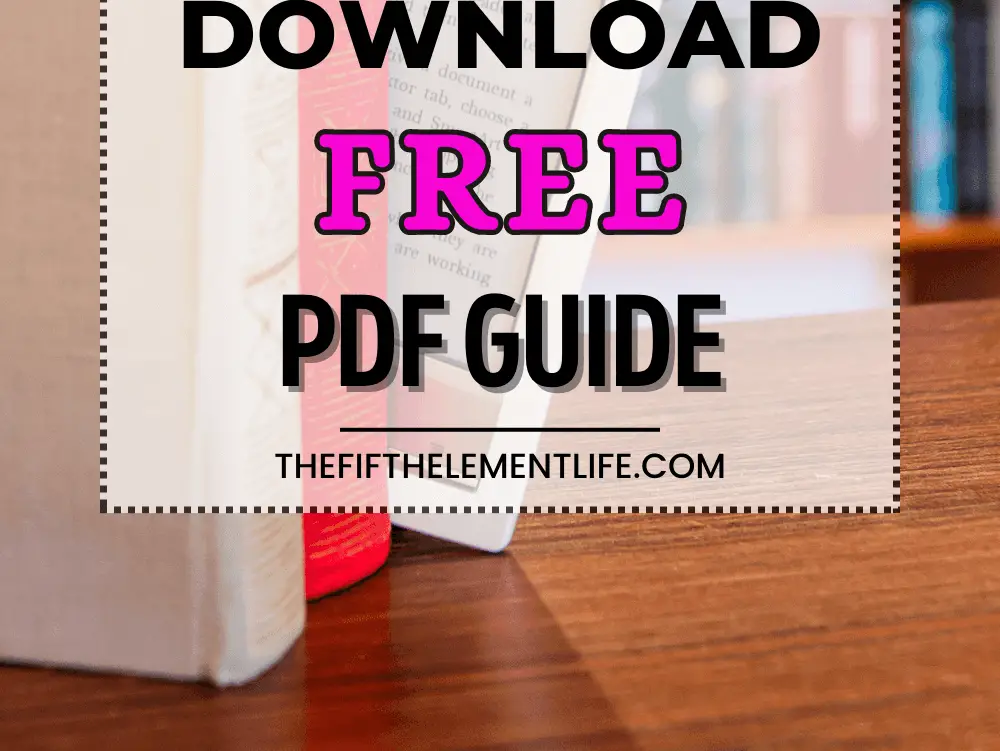
As you can see, in order to alleviate the burden of stress and create a harmonious life, incorporating positive habits into your daily routine can make a significant difference.
These habits help you build resilience, enhance well-being, and restore balance in the face of life’s challenges.
Let’s explore some effective habits that can reduce stress and promote a sense of calm:
- Mindful Meditation: Dedicate a few minutes each day to practice mindfulness meditation. This simple yet powerful technique involves focusing your attention on the present moment, observing your thoughts and sensations without judgment.
Regular mindfulness practice can help quiet the mind, reduce anxiety, and increase self-awareness. - Physical Exercise: Engaging in regular physical activity is a natural stress reducer. Whether it’s a brisk walk, yoga session, or any form of exercise you enjoy, it helps release endorphins, which boost mood and reduce stress hormones.
Make exercise a part of your routine to reap its numerous physical and mental benefits. - Deep Breathing Techniques: When stress arises, take a moment to engage in deep breathing exercises. Inhale deeply through your nose, hold for a few seconds, and exhale slowly through your mouth.
Deep breathing triggers the relaxation response, calms the nervous system, and helps you regain composure during stressful moments. - Time Management: Organize your tasks and prioritize them effectively. Break larger tasks into smaller, manageable steps, and set realistic deadlines. By managing your time efficiently, you can reduce overwhelm, improve productivity, and create a sense of control over your schedule.
- Journaling: Maintain a journal where you can express your thoughts, emotions, and concerns. Writing can serve as a therapeutic outlet, allowing you to gain clarity, process emotions, and find solutions to problems.
Use your journal to reflect on your experiences, identify stress triggers, and explore strategies for managing them. - Healthy Sleep Habits: Establish a consistent sleep routine and prioritize quality rest. Create a peaceful sleep environment, practice relaxation techniques before bed, and ensure you get an adequate amount of sleep each night. Quality sleep rejuvenates the mind and body, helping you better cope with stress.
- Utilize the Online Journal: Enhance your stress reduction journey with the valuable insights and guidance offered by the online journal, “Habits That Relieve Stress and Promote Harmony.”
This comprehensive resource is designed to empower you with practical tips, expert advice, and evidence-based strategies for managing stress and creating a harmonious life.
Introducing the Online Journal: “Habits That Relieve Stress And Promote Harmony”

Within the pages of the online journal, “Habits That Relieve Stress and Promote Harmony,” you’ll find a treasure trove of knowledge and practical tools to help you navigate the challenges of stress and cultivate a life of balance and serenity.
Let’s take a closer look at each chapter and give you a glimpse of what you can expect:
- The Negative Impact of Stress on Your Life: Explore the various ways stress can manifest in your life and understand its detrimental effects on your physical and mental well-being. Gain insights into the importance of stress reduction for overall health and happiness.
- How Positive Habits Can Reduce Stress: Discover the power of positive habits in mitigating stress. Learn effective strategies to cultivate habits that promote relaxation, resilience, and emotional well-being, enabling you to better manage stress in your daily life.
- Habits That Make Life Easier and More Pleasant: Dive into a collection of practical habits that enhance your daily life and bring more joy, simplicity, and fulfillment. From time-management techniques to self-care rituals, this chapter offers valuable insights to help you create a harmonious and enjoyable lifestyle.
- How to Create New Habits: Uncover the secrets to successful habit formation. Learn proven techniques to start and sustain positive habits, break free from negative patterns, and create lasting change in your life.
Empower yourself with practical strategies for building habits that support your well-being. - Remove Old Habits That Are Detrimental to Your Progress: Identify and eliminate habits that no longer serve you. Explore effective methods to break free from negative patterns, overcome self-sabotage, and replace unhelpful habits with ones that align with your goals and values.
- What to Do When Challenges Occur: Life is full of ups and downs, and challenges are bound to arise. This chapter provides guidance on how to navigate setbacks, overcome obstacles, and maintain your commitment to positive habits, even in the face of adversity.
Next Steps
Now that you’ve explored the insightful chapters of the online journal, “Habits That Relieve Stress and Promote Harmony,” it’s time to take the next steps towards implementing positive changes in your life.
Here are some practical next steps to consider
- Reflect on Your Current Habits: Take some time to reflect on your current habits and identify areas where stress may be prevalent. Are there any habits that contribute to your stress levels? Reflecting on this will help you gain clarity and awareness.
- Choose One Habit to Focus On: Select one habit from the journal that resonates with you and commit to incorporating it into your daily routine. Start small and build from there.
Remember, even small changes can have a significant impact over time. - Create a Habit Tracker: Consider creating a habit tracker to monitor your progress. This can be a simple chart or a digital app that allows you to track your habit-building journey.
Monitoring your consistency can help you stay motivated and accountable. - Seek Support and Accountability: Share your commitment to reducing stress and cultivating positive habits with a friend, family member, or support group. Having someone to hold you accountable and provide encouragement can greatly enhance your chances of success.
- Practice Self-Care: Prioritize self-care activities that promote relaxation and well-being. Whether it’s taking a warm bath, practicing mindfulness, engaging in a hobby, or spending time in nature, make self-care a regular part of your routine to combat stress.
- Continuously Learn and Grow: Keep seeking knowledge and inspiration related to stress reduction and personal growth. Read books, listen to podcasts, attend workshops, and explore other resources that align with your goals.
The journey towards reducing stress and promoting harmony is an ongoing process of learning and growth.
Remember, progress takes time and effort. Be patient and kind to yourself as you navigate this journey.
Celebrate small victories along the way and stay committed to building positive habits that relieve stress and bring more harmony into your life.
Frequently Asked Questions
Can stress have long-term effects on my health?
Yes, chronic stress can have detrimental effects on your physical and mental health.
It can contribute to conditions such as heart disease, high blood pressure, weakened immune system, anxiety, and depression.
Managing stress through healthy habits is crucial for long-term well-being.
Are there natural ways to relieve stress without relying on medication?
There are various natural methods to relieve stress.
These include engaging in regular exercise, practicing relaxation techniques like deep breathing and meditation, spending time in nature, pursuing hobbies or activities that bring joy, maintaining a supportive social network, and adopting a healthy lifestyle with balanced nutrition and sufficient sleep.
Can habits really help reduce stress?
Yes, habits play a significant role in managing stress.
Positive habits, such as exercise, meditation, and self-care activities, can help reduce stress levels by promoting relaxation, improving mood, and enhancing overall well-being.
How long does it take to form a new habit?
The time it takes to form a new habit can vary from person to person.
It generally takes an average of 21 to 66 days to develop a new habit, depending on factors such as complexity, consistency, and individual differences.
How can I break unhealthy habits that contribute to my stress?
Breaking unhealthy habits requires awareness, intention, and persistence.
Start by identifying the triggers and patterns associated with the habit.
Replace the unhealthy habit with a healthier alternative, and practice consistency and self-discipline. Seeking support from a therapist or coach can also be beneficial.
How can the “Habits That Relieve Stress and Promote Harmony” journal help me?
The “Habits That Relieve Stress and Promote Harmony” journal serves as a valuable resource to guide and support you in developing positive habits to reduce stress.
It provides insights, prompts, and tips to help you cultivate a healthier lifestyle, manage stress more effectively, and promote overall well-being.
Continue Reading 👉🏽: Breaking Free From Stress The Online Journal To Embracing Inner Calm FREE DOWNLOAD
- 49 Unique Self-Care Kit Ideas For Your Well-Being - February 14, 2024
- 85 Exciting And Encouraging Quotes About Trying New Things In Life To Inspire That First Step - February 14, 2024
- 125 Inspiring You Are Amazing Quotes For Yourself And The Special People In Your Life - February 14, 2024

